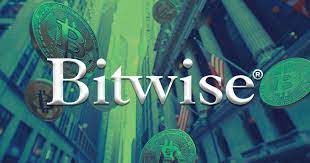In a significant move that could signal a broader trend, Nasdaq-listed energy transport company Robin Energy has announced a groundbreaking shift in its financial approach. The company’s board has officially approved the adoption of a Bitcoin strategy, designating Bitcoin as a primary treasury reserve asset. This decision begins with an initial allocation of $5 million, setting a precedent for how traditional industries might integrate digital assets into their core financial planning. For those keenly observing the intersection of established markets and the burgeoning cryptocurrency space, this development offers a compelling case study.
Why Are Companies Adopting a Bitcoin Strategy for Their Treasuries?
The decision by Robin Energy to embrace a Bitcoin strategy is not an isolated incident but rather part of a growing movement among forward-thinking corporations. In an economic landscape marked by inflation concerns, fluctuating interest rates, and geopolitical uncertainties, companies are seeking alternative ways to preserve and potentially grow their capital. Here are some key reasons why Bitcoin is becoming an attractive option for corporate treasuries:
- Inflation Hedge: With its capped supply of 21 million coins, Bitcoin is often seen as a hedge against inflation. Unlike fiat currencies, which can be devalued through quantitative easing, Bitcoin’s scarcity model offers a potential store of value.
- Diversification: Adding Bitcoin to a treasury diversifies the company’s asset holdings beyond traditional cash and fixed-income instruments, which may yield low returns in the current environment.
- Potential for Appreciation: Despite its volatility, Bitcoin has historically demonstrated significant long-term growth, offering the potential for substantial capital appreciation that traditional assets might not provide.
- Technological Advancement: Investing in Bitcoin aligns companies with emerging technologies and the digital economy, potentially enhancing their brand image as innovative and future-oriented.
Pioneering companies like MicroStrategy have famously adopted a substantial Bitcoin strategy, demonstrating conviction in its long-term value. While each company’s circumstances differ, the underlying rationale often revolves around strategic asset management in a rapidly evolving global economy.
Robin Energy’s Specific Bitcoin Strategy: A Prudent and Phased Approach
Robin Energy’s approach to integrating Bitcoin into its treasury is particularly noteworthy for its prudence and discipline. According to the Globe Newswire press release, the company’s plan is not a one-off speculative purchase but a carefully considered, long-term commitment:
- Initial Allocation: The company is starting with a $5 million purchase, a significant yet manageable sum for an initial foray into digital assets. This allows them to gain experience and understand market dynamics before larger commitments.
- Gradual Expansion: Robin Energy plans to gradually allocate up to 50% of its long-term cash reserves to Bitcoin. This phased approach mitigates risk and allows for flexibility based on market conditions and internal assessments.
- Dollar-Cost Averaging (DCA): A key element of their Bitcoin strategy is the use of a disciplined dollar-cost averaging approach. DCA involves investing a fixed amount of money at regular intervals, regardless of the asset’s price. This strategy helps reduce the impact of market volatility by averaging out the purchase price over time, minimizing the risk of buying at a market peak.
- Funding from Existing Cash Reserves: Crucially, the entire allocation will be funded from existing cash reserves, meaning the company will not incur new debt or dilute shareholder equity to finance this move. This demonstrates a strong financial position and a responsible approach to treasury management.
This systematic and cautious strategy highlights Robin Energy’s commitment to responsible financial stewardship while embracing innovative asset management techniques.
What Does This Bitcoin Strategy Mean for the Energy Sector and Beyond?
Robin Energy’s adoption of a Bitcoin strategy holds significant implications, particularly for the energy sector, which has traditionally been conservative in its financial practices. This move could inspire other companies within the industry to re-evaluate their treasury management strategies. The energy sector, with its substantial capital expenditures and often long-term investment horizons, could find Bitcoin an appealing asset for long-term reserve management.
Beyond the energy sector, this decision reinforces the broader trend of institutional adoption of cryptocurrencies. As more publicly traded companies, especially those outside the tech or finance industries, allocate portions of their balance sheets to Bitcoin, it lends further legitimacy and stability to the digital asset market. It also signals a growing recognition of Bitcoin as a legitimate financial instrument rather than just a speculative asset.
The intersection of energy and Bitcoin is also fascinating from an operational perspective. As the Bitcoin network grows, its energy consumption is a topic of ongoing discussion. For an energy transport company to invest in Bitcoin, it might also open doors for future integration of blockchain technologies within their operations or even explore sustainable energy solutions for Bitcoin mining, creating a synergistic relationship.
Navigating the Waters: Challenges and Considerations for a Corporate Bitcoin Strategy
While the benefits of a Bitcoin strategy can be compelling, companies embarking on this path must also be acutely aware of the challenges and considerations involved. It’s not a decision to be taken lightly, and Robin Energy, like any other pioneer, will face certain hurdles:
- Market Volatility: Bitcoin is known for its price swings, which can be significant. While DCA helps mitigate this, large market downturns can still impact a company’s reported financial health.
- Regulatory Uncertainty: The regulatory landscape for cryptocurrencies is still evolving globally. Changes in regulations regarding taxation, custody, or usage could impact the value or operational aspects of holding Bitcoin.
- Custody and Security: Securing significant amounts of Bitcoin requires specialized knowledge and robust security protocols to prevent hacks or loss of private keys. This is a critical operational challenge.
- Accounting and Reporting: Current accounting standards (like GAAP) often classify Bitcoin as an intangible asset, which can lead to complex impairment charges if its value drops, even if the company doesn’t sell it. This can affect reported earnings.
- Public and Investor Perception: While some investors applaud such forward-thinking moves, others might view it as too risky or outside a company’s core business, potentially impacting stock performance.
Companies must conduct thorough due diligence, establish clear internal policies, and ensure their leadership and finance teams are well-versed in the intricacies of digital asset management.
Looking Ahead: Actionable Insights and the Future of Corporate Bitcoin Adoption
Robin Energy’s strategic decision offers valuable insights for other companies contemplating a similar path. For those considering a Bitcoin strategy, several actionable points emerge:
- Start Small and Scale Up: A phased approach, like Robin Energy’s, allows for learning and adaptation without undue risk.
- Embrace Dollar-Cost Averaging: This systematic buying strategy is crucial for mitigating volatility and building a position over time.
- Prioritize Security: Invest in top-tier custody solutions and cybersecurity measures to protect digital assets.
- Understand Accounting Implications: Consult with financial experts to navigate the complexities of accounting for Bitcoin on the balance sheet.
- Communicate Clearly: Transparent communication with shareholders and stakeholders about the rationale and risks is vital.
The trend of corporate Bitcoin adoption appears to be gaining momentum. As digital currencies become more integrated into the global financial system, we may see more traditional companies, from various sectors, follow Robin Energy’s lead, reshaping the future of corporate treasury management.
Conclusion: A New Chapter in Corporate Finance
Robin Energy’s adoption of a Bitcoin strategy marks a significant milestone in the evolving narrative of corporate finance. By allocating a portion of its treasury to Bitcoin, the energy transport company is not only seeking to optimize its cash reserves but also signaling a bold embrace of digital innovation. This move, characterized by a disciplined dollar-cost averaging approach and funded entirely from existing cash, exemplifies a thoughtful and strategic integration of a novel asset class into traditional business operations. As the digital economy continues to mature, Robin Energy’s pioneering step could serve as a powerful blueprint for other companies looking to navigate the complexities and capitalize on the opportunities presented by Bitcoin and the broader cryptocurrency market. It’s a clear indication that Bitcoin is increasingly viewed not just as a speculative investment, but as a legitimate and valuable component of a diversified corporate treasury.
Frequently Asked Questions (FAQs)
1. What is Robin Energy’s primary motivation for adopting a Bitcoin strategy?
Robin Energy’s primary motivation is to diversify its treasury reserves and potentially hedge against inflation, leveraging Bitcoin’s scarcity and long-term appreciation potential as an alternative to traditional cash holdings.
2. How much Bitcoin is Robin Energy initially allocating?
Robin Energy is starting with an initial allocation of $5 million for its Bitcoin purchase.
3. What is Dollar-Cost Averaging (DCA), and why is Robin Energy using it?
Dollar-Cost Averaging (DCA) is an investment strategy where a fixed amount of money is invested at regular intervals, regardless of the asset’s price. Robin Energy is using it to mitigate the impact of Bitcoin’s price volatility, averaging out their purchase price over time and reducing the risk of buying at a single market peak.
4. Will Robin Energy use new debt to fund its Bitcoin strategy?
No, Robin Energy’s Bitcoin allocation will be funded entirely from its existing cash reserves, without incurring any new debt.
5. What are the potential risks for companies adopting a Bitcoin strategy?
Potential risks include Bitcoin’s price volatility, evolving regulatory uncertainty, the complexities of secure custody, and specific accounting implications for intangible assets that can lead to impairment charges.
6. What does this move mean for the broader energy sector?
Robin Energy’s decision could serve as a precedent, encouraging other companies within the traditionally conservative energy sector to explore or adopt similar digital asset strategies for their treasury management, signaling a broader acceptance of cryptocurrencies in established industries.
If you found this article insightful, consider sharing it with your network! Your support helps us bring more valuable insights into the evolving world of corporate crypto adoption.
To learn more about the latest Bitcoin strategy trends, explore our article on key developments shaping Bitcoin institutional adoption.




